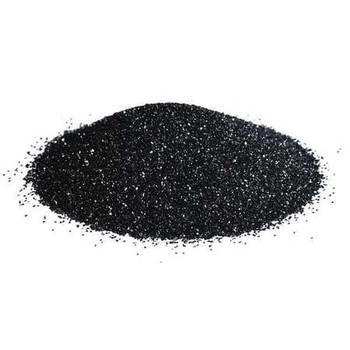Description
Silicon carbide (SiC) is a synthetic mineral most commonly produced in electrical resistance furnaces, by the Acheson process. In an Acheson furnace, a mixture of carbon material (usually petroleum coke) and a silica or quartz sand is reacted chemically at high temperatures in the range of 1700–2500°C, and finally get SiC. SiC can be produced as either black or green, depending on the quality of the raw materials.The mark of black silicon carbide is usually C, the crystallization is α-SiC, with hexagonal or rhombohedral crystal type, containing SiC around 98%.
Black Silicon Carbide Advantages:
- Black Silicon Carbide’s hardness is between fused alumina and synthetic diamond. The mechanical intensity of it is higher than that of fused alumina. It is a material with many excellent properties like high wear resistance, low specific density, an outstanding chemical inertness even at elevated temperatures, high thermal conductivity, low thermal expansion and good shock resistance.
- Black silicon carbide is suitable for making organic and vitrified grinding wheels for grinding hard or brittle materials such as cast iron, ceramics, glass, non-ferrous metal, leather, rubber, wood, rock, it also be used as wiresawing semiconductor materials, lapping, pressure blasting, refractory materials, precision ceramics, non-woven abrasive production, anti-skid, and other critical applications.
- We offers a full range of grains and powders in black quality as well as various particle size distributions based on ISO, FEPA, ANSI, JIS and GOST standards, or by customer’s specific requirement.

